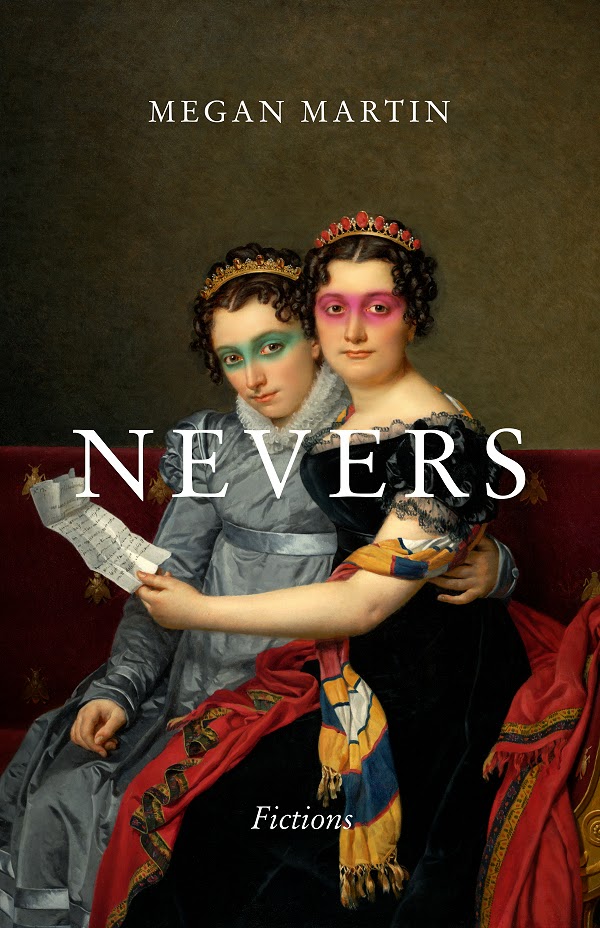Megan Martin. Caketrain Press, $9
paperback (114p) ISBN: 9780988891579
Every
character in Nevers is having a
better time than the narrators. And
everyone, according to these narrators, is an asshole. Megan Martin’s collection is comprised of
shorts of almost uniform length and uniform theme. Each is voiced by a narrator who has had
enough.
Sometimes
the narrator claims to be Megan Martin herself—referring to the book you’re
reading, the page you’re on, and what you the reader are currently doing. Sometimes the narrator hates Megan Martin and
her accomplishments. But no matter what,
the narrator in each short is angry. The
anger is often aimed at the writing world, but the anger also comes from
disconnection between friends, family, and a recurring lover named B.
A
complaining narrator who is writing about writing might sound like a recipe for
disaster. But Martin manages to break
the rules by keeping it surprising. Love
and writing find themselves in worlds of fantasy: robot foxes, a bride walking
down the aisle in a breast hat, one narrator stuck in a hot tub full of
academics, or “all humanity’s worst failures and wickedness.”
Martin
saves unlikable narrators from being abandoned by the reader by adding vulnerability,
even as the narrators try to hide it. One who, in jealousy of another writer, hopes
to “inspire a suicide in a perfect stranger,” but “writing feels like
simultaneously stabbing and being stabbed.”
The
reader can see the humanity beneath the defense mechanisms. One narrator may say, “Shit, I hate when the
narrator is a writer,” but also, “I only write because I want to talk about
myself all the time. And also because I
cannot tell you to your face that I love you furiously when I imagine you in
dreams…” When talking to a cat about art
and her perceived failure at art, another narrator says, “‘Cat…sometimes I want
to move out to the woods alone and let all the meaning out of me and not care
that I have no meaning anymore.’”
Many
times, the cynic breaks to become tender, as in the story of a stuffed cat
named Fifi that a childhood narrator toted around at a garage sale. The adults lovingly told her that Fifi looked
just like a real cat, and it’s not until much later that she realizes her
“charmed and delusional existence.”
And Martin
manages to break the rules with humor. I
found myself laughing at every twist of language or direction in the book, and
there are many twists.
Readers
won’t find a traditional narrative in Nevers. They won’t find a climactic build of stories
that seek to find answers to jealousy or creative failure. What they will find are micro-fictions like potato
chips. Read one and the next thing they
know, they’ve read the whole book. (May 2014)
Purchase
Nevers HERE.
Reviewer
bio: Christy Crutchfield’s novel How to Catch a Coyote is
forthcoming from Publishing Genius in 2014. Her work has appeared in Mississippi
Review online, Salt Hill Journal, the Collagist, Newfound,
and others. Visit her at christycrutchfield.com
